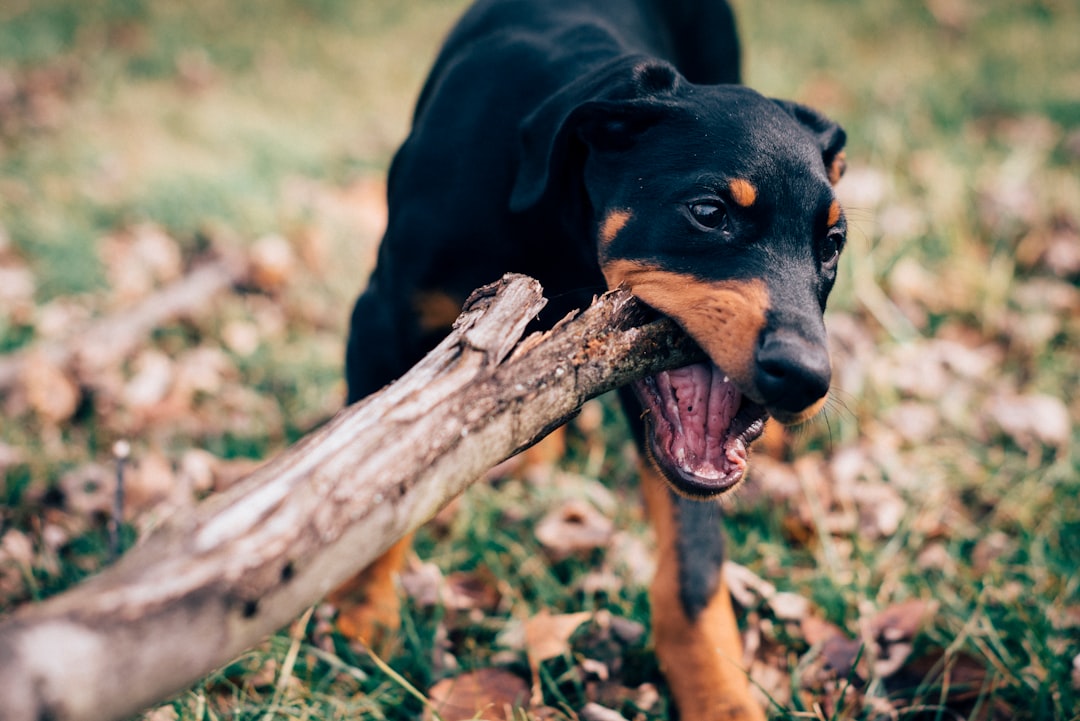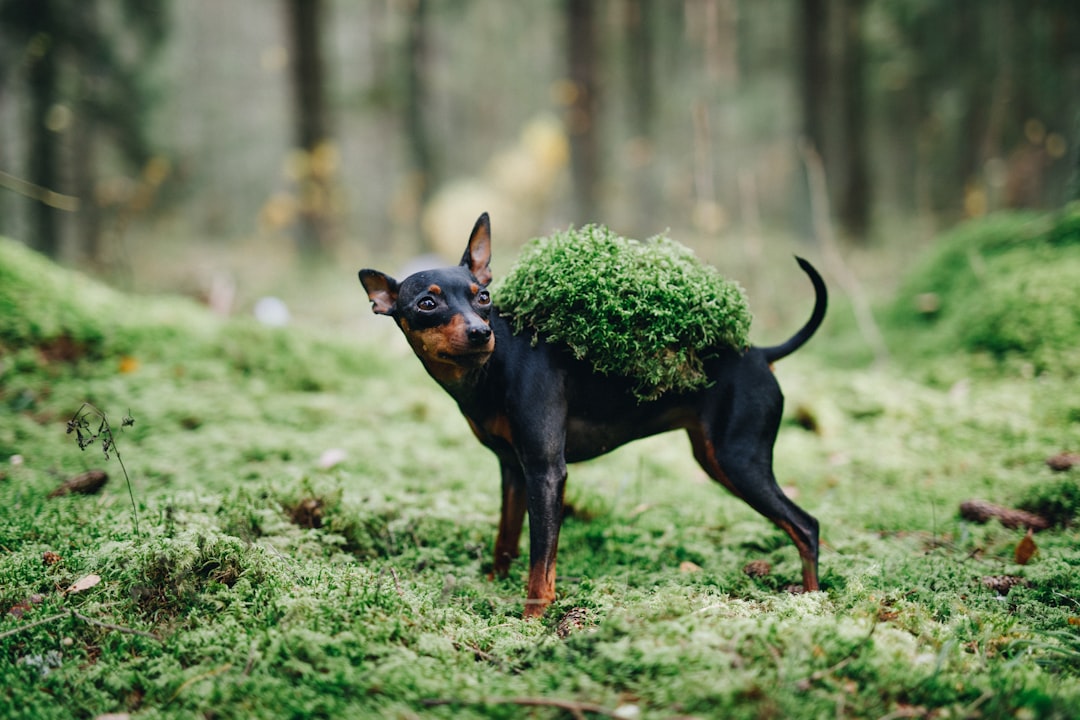- You are here:
- Home »
- Blog »
- Boston Dog Trainer »
- Unveiling the Majesty of Doberman Pinschers: Physical Characteristics, Temperament, and Care Essentials
Unveiling the Majesty of Doberman Pinschers: Physical Characteristics, Temperament, and Care Essentials
Unveiling the Majesty of Doberman Pinschers: Physical Characteristics, Temperament, and Care Essentials
An article about the physical characteristics and breed standards of Doberman Pinschers, covering their history, physical attributes, health and care needs, training and socialization, temperament and behavior, and tips for finding reputable breeders or adoption options.
History and Origin of Doberman Pinschers
Louis Dobermann, a German tax collector, developed the Doberman Pinscher breed in the late 1800s. He aimed to create a loyal and protective companion for his work and travels. To achieve this, he is believed to have utilized various breeds such as the Rottweiler, German Pinscher, Great Dane, German Shepherd, and Manchester Terrier, resulting in the distinctive characteristics of the Doberman Pinscher we know today.
The original purpose of Doberman Pinschers was as guard and police dogs. They were also used as messenger and sentry dogs in World War I and II. Their intelligence, loyalty, and protective instincts made them invaluable in these roles. The breed’s history and origin as a versatile working dog have contributed to its reputation as a noble and dependable protector with a strong work ethic and unwavering loyalty to its family.
Dobermans’ involvement in significant historical events and their original purpose as working dogs have shaped their temperament and physical characteristics, making them an iconic breed known for their bravery, intelligence, and devotion.
 Physical Characteristics and Breed Standards
Physical Characteristics and Breed Standards
In addition to their physical attributes, Doberman Pinschers are recognized for their distinctive gait, which is described as effortless, smooth, powerful, and well-coordinated. This unique gait showcases good reach in the front and drive behind, adding to the breed’s elegance and agility. For example, in conformation events, judges often assess the dog’s gait to ensure it aligns with the breed standard set forth by kennel clubs. This standard not only emphasizes the appearance of the Doberman but also its movement, contributing to the overall impression of strength, grace, and balance.
Furthermore, the coat of the Doberman Pinscher is described as short, hard, and thick, with an invisible gray undercoat permitted on the neck. This dense coat serves as protection against various weather conditions and adds to the breed’s sleek and polished appearance. For instance, during shedding seasons, regular grooming is essential to maintain the coat’s health and luster, in line with the breed standards. These distinctive physical characteristics, as outlined by kennel clubs, provide a comprehensive guide for breeders, handlers, and judges to ensure the preservation and perpetuation of the Doberman’s unique traits and appearance. [3].
Health and Care Needs
In addition to the lifespan of 10 to 13 years, it’s important to note that Doberman Pinschers are generally robust dogs when well cared for. However, they are prone to certain genetic health issues such as hip dysplasia and heart conditions. Hip dysplasia is a common concern in many large dog breeds, and it occurs when the hip joint doesn’t develop properly, leading to arthritis and mobility issues in the affected dog. Heart conditions, including dilated cardiomyopathy and von Willebrand’s disease, are also prevalent in the breed and can significantly affect their quality of life.
Regular veterinary check-ups and preventive care are crucial for Doberman Pinschers to monitor and manage these potential health issues effectively. Early detection and intervention can help mitigate the impact of these conditions, ensuring the dogs lead healthy and comfortable lives. Responsible Doberman owners are advised to work closely with their veterinarians to establish a comprehensive healthcare plan that includes regular wellness exams, vaccinations, and screenings for genetic predispositions to ensure the overall well-being of their beloved pets.
Moreover, grooming plays a pivotal role in maintaining the health of Doberman Pinschers. Regular brushing not only helps to keep their short, hard coat in good condition but also allows for the early detection of any skin issues, ticks, or fleas. Additionally, proper dental care, including regular teeth brushing and dental check-ups, is essential to prevent dental diseases that can affect their overall health. Furthermore, routine nail trims and ear checks are important aspects of their grooming regimen, as neglecting these areas can result in discomfort, infections, and other health complications. By adhering to a consistent grooming routine and ensuring proper care, Doberman owners can contribute to the long-term health and wellness of their dogs, promoting a happy and thriving companionship.
Training and Socialization
Early training and socialization are essential for Doberman Pinschers to ensure they grow into well-mannered and stable dogs. Due to their intelligence and high energy levels, these dogs require mental stimulation and regular training to prevent behavioral issues. For instance, a well-socialized Doberman will be comfortable and confident around different people, animals, and environments, making them great family pets and companions.
An example of the importance of early training and socialization can be seen in Dobermans’ natural protective instincts. Without proper socialization, they may exhibit excessive guarding behavior, which can be a challenge for owners. However, with early and consistent training, they can learn to differentiate between real threats and normal, everyday situations, making them reliable and discerning protectors. Therefore, an investment in early training and socialization pays off in the long run, creating a harmonious relationship between the dog and its family.
In addition, socialization and training are crucial for preventing any potential aggressive tendencies in Doberman Pinschers. When properly socialized, they are known to be affectionate and loyal, making them excellent companions for families. Therefore, it is important to expose them to various situations, people, and animals from an early age to help them develop into well-adjusted and friendly dogs. This can be achieved through puppy classes, regular outings, and positive interactions with different individuals and environments. [1]
Temperament and Behavior
Doberman Pinschers are known for their exceptional loyalty and determination, making them ideal family protectors. Their energetic and alert nature allows them to excel in various roles, including police and military work, where their fearlessness and obedience are valuable traits. For example, the Doberman is often used in search and rescue operations due to its keen sense of smell and ability to remain focused in challenging environments. This combination of traits makes them an indispensable asset in critical situations, showcasing their versatility and reliability.
In addition to their protective instincts, Doberman Pinschers also exhibit a gentle and caring side, which makes them well-suited for therapy work. Their unwavering loyalty and affectionate nature enable them to form strong bonds with individuals, providing comfort and support in therapeutic settings. For instance, Dobermans have been known to bring joy and companionship to hospital patients and elderly individuals in nursing homes through their calm and empathetic demeanor. Their ability to adapt to different roles and environments reflects their adaptability and social intelligence, underscoring their unique temperament and behavior.
Finding Reputable Breeders and Adoption
When looking for a Doberman Pinscher, it is crucial to carefully consider the source. Rescue organizations, such as local shelters or specialized Doberman rescue groups, are an excellent option for those who want to provide a loving home for a dog in need. These organizations often have thorough adoption processes, ensuring that the dog is a good fit for the potential owner and that the owner is well-prepared to care for the dog.
Reputable breeders are also a valuable source for acquiring a Doberman Pinscher. They prioritize the health, temperament, and overall well-being of the dogs they breed. A reputable breeder will conduct health screenings for genetic issues, provide proper socialization for the puppies, and be knowledgeable about the breed’s standards and characteristics. Engaging with a responsible breeder ensures that the Doberman Pinscher you bring into your home is healthy, well-adjusted, and a good representation of the breed.
In addition, there are various resources available for finding reputable breeders and rescue organizations, such as national and local breed clubs, online breeder directories, and community recommendations. These resources can guide potential owners in making informed decisions and ultimately contribute to the betterment of the Doberman Pinscher breed.
 Conclusion
Conclusion
In conclusion, the Doberman Pinscher is a remarkable breed with a rich history and unique physical traits. Understanding the evolution of the breed, from its development in the late 1800s by Louis Dobermann to its influences from other breeds like the Rottweiler, German Pinscher, Great Dane, German Shepherd, and Manchester Terrier, provides valuable insight into the characteristics and temperament of these dogs. For example, the Doberman’s original purpose as guard and police dogs, as well as their significant role in World War I and II, showcases their intelligence, loyalty, and protective nature.
Moreover, emphasizing the importance of early training and socialization for Doberman Pinschers is crucial for their well-being and behavior. For instance, due to their energetic and determined temperament, early training and socialization are essential to address any potential stubbornness or aggression. This highlights the need for responsible ownership and the positive impact of early intervention in shaping the behavior of these dogs, ensuring they become well-adjusted and obedient companions.
Additionally, choosing reputable breeders or adoption from rescue organizations or shelters is a critical aspect of promoting the welfare of Doberman Pinschers. By understanding the breed standards, potential owners and enthusiasts can make informed decisions, ensuring that these remarkable dogs are cared for in loving and responsible environments. Overall, the combination of historical knowledge, breed standards, and responsible ownership plays a pivotal role in the positive development and well-being of Doberman Pinschers.
